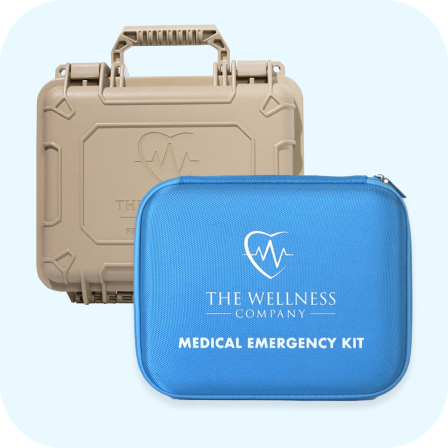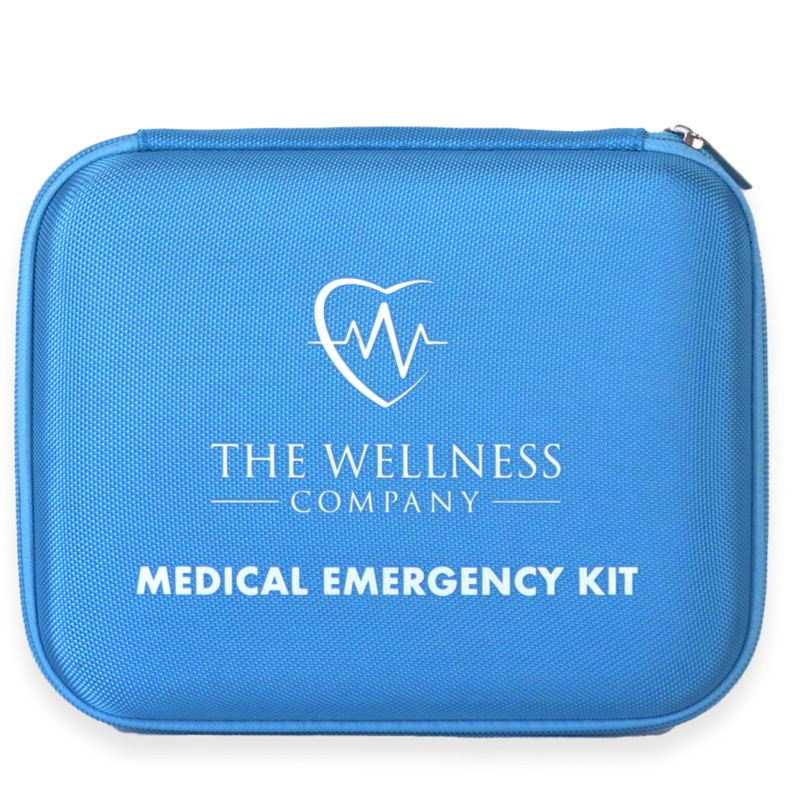Why Are There 3 Different Kinds of Pain Relievers in the First Aid Emergency Kit?

Pain relievers have historically been made from natural substances, from which many of our modern-day drugs have been derived. For instance, morphine was initially derived from the opium plant, and modern chemistry has formulated synthetic forms of morphine that work similarly. One example is fentanyl, a powerful synthetic morphine that is 100 times more potent than morphine.
Another example is aspirin, which was initially derived from willow bark and has proven to be one of the most valuable medications in the world, with uses that far surpass pain and inflammation relief.
Fentanyl isn’t the only pain reliever made from the marriage of modern science and chemistry. Acetaminophen and Ibuprofen are also products of modern science that are now effective and available to the public.
It can be confusing trying to decide which pain reliever would be best for what type of pain.
The 3 pain relievers in the First Aid Emergency Kit have broad uses for different types of pain. Each has its unique profile that can help relieve minor aches and pains that accompany overuse, cuts, scrapes, sprains, and strains (to name a few) and can even be used to reduce fever in case you become ill.
Below are the three pain relievers found in the First Aid Emergency Kit with information to help you decide which is best for your type of pain.
Medication/history
Aspirin
Probably the most known and versatile of pain relievers, Aspirin has a rich history dating back to ancient civilizations that used willow bark, which contains salicin, a precursor to salicylic acid, to alleviate pain and fever. In 1828, Joseph Buchner, a professor of pharmacy, managed to extract salicin in a purer form, calling it salicin after the Latin name for willow, Salix. Chemists learned to modify salicylic acid (of which aspirin is a precursor) chemically to reduce its acidity and irritation to the stomach.
In 1897, Felix Hoffmann, a chemist at Bayer, synthesized acetylsalicylic acid (aspirin). Bayer began mass-producing aspirin in 1899, making it the first drug to be sold as a tablet.
How it works
Aspirin inhibits the COX-1 and COX-2 enzymes, which are involved in the inflammation process. By reducing the production of prostaglandins, aspirin not only eases pain and inflammation but also reduces fever and can prevent blood clots.
Uses
Aspirin is effective for muscle aches, toothaches, common colds, and headaches.
It is also used in a low dose to prevent heart attacks and strokes, thanks to its antiplatelet effects.
There is some evidence that aspirin use is associated with slower cognitive decline in patients with Alzheimer’s disease. (1)
Prevention of Cancer:
Colorectal Cancer: Some studies suggest that long-term use of aspirin may reduce the risk of developing colorectal cancer and possibly other cancers like prostate and breast cancer, this may be due to aspirin’s ability to inhibit the proliferation of cancer cells and promote apoptosis (cell death) through its role in controlling inflammation and other cellular changes involved in the proliferation of cancer.
Given the mixed results along with the many side effects of aspirin, this type of therapy should only be used under the guidance of a healthcare provider. (2)
Prevention of Preeclampsia: In Pregnant Women at High Risk: Low-dose aspirin is sometimes recommended for pregnant women at high risk of preeclampsia, a condition characterized by high blood pressure and signs of damage to organs, such as the liver and kidneys. Aspirin helps to improve blood flow to the placenta and reduce the risk of preeclampsia.
Migraine Prevention:
Low-dose aspirin may be used to reduce the frequency and severity of migraine headaches.
Cautions
- Aspirin thins the blood. Because of this, people with stomach or bleeding disorders, or those using blood thinners should consult their primary health provider before taking it.
- Long-term use of high-dose aspirin can impair kidney function, leading to kidney failure in severe cases.
- It is also associated with Reye's syndrome in children and teenagers recovering from viral infections.
- Tinnitus and Hearing Loss: High doses of aspirin can cause tinnitus (ringing in the ears) or even temporary hearing loss, which is usually reversible upon discontinuing the drug.
Medication/history
Acetaminophen was first synthesized in 1878, but its pain and fever-reducing properties weren’t recognized until the mid-20th century. It became commercially available under the name Triagesic and is now better known under the brand name Tylenol.
How it works
Acetaminophen acts on the pain centers in the brain to help relieve pain and reduce fever, but it does not possess anti-inflammatory properties. The exact mechanism is not fully understood but is believed to involve blocking the COX enzymes in the brain, affecting the pain signals.
Uses
Reducing fever and relieving pain not associated with inflammation, such as headaches, backaches, and toothaches. It is also recommended for pain relief in individuals who cannot tolerate NSAIDs (non-steroidal anti-inflammatory) well.
Cautions
The most serious risk associated with acetaminophen is liver damage, which can occur from taking large doses or when combined with alcohol.
Some health practitioners recommend taking Coenzyme 10 (CoQ10) when taking higher doses of acetaminophen or if the liver is compromised to alleviate liver damage. (3)
Kidney Problems: Prolonged use of high doses of acetaminophen may be linked to kidney damage, although this is less common compared to liver issues.
WARNING: Some narcotic pain relievers contain acetaminophen. If taking over-the-counter acetaminophen and a prescription pain reliever, check with your care provider or pharmacist before taking both at the same time. This practice could lead to liver damage or even liver failure.
Medication/history
Ibuprofen
The history of ibuprofen began in the 1950s at the Boots Pure Drug Company in the UK. The focus was to create a drug that was effective like aspirin but without the severe gastrointestinal side effects associated with high doses of aspirin. Synthesized in 1961, ibuprofen was approved for over-the-counter sales in the United States in the early 1980s under trade names such as Motrin and Advil. (4)
How it works
NSAID inhibits COX-1 and COX-2 to reduce prostaglandins, providing anti-inflammatory, analgesic, and antipyretic (fever-reducing) effects.
Uses
Ibuprofen is particularly effective for treating inflammation-related pain such as from arthritis, muscle aches, menstrual cramps, and minor injuries like sprains. It’s also beneficial for headaches and dental pain.
Cautions
Can cause stomach pain, and ulcers, and increase the risk of heart problems with long-term use.
Comparison on of Effects of aspirin, acetaminophen, and ibuprofen

Comparison of side effects of aspirin, acetaminophen, and ibuprofen

Citations
- Weng J, Zhao G, Weng L, Guan J; Alzheimer’s Disease Neuroimaging Initiative. Aspirin using was associated with slower cognitive decline in patients with Alzheimer's disease. PLoS One. 2021 Jun 16;16(6):e0252969. doi: 10.1371/journal.pone.0252969. PMID: 34133445; PMCID: PMC8208559.
- Wang L, Zhang R, Yu L, Xiao J, Zhou X, Li X, Song P, Li X. Aspirin Use and Common Cancer Risk: A Meta-Analysis of Cohort Studies and Randomized Controlled Trials. Front Oncol. 2021 Jun 18;11:690219. doi: 10.3389/fonc.2021.690219. PMID: 34277434; PMCID: PMC8279749.
- Zhang P, Chen S, Tang H, Fang W, Chen K, Chen X. CoQ10 protects against acetaminophen-induced liver injury by enhancing mitophagy. Toxicol Appl Pharmacol. 2021 Jan 1;410:115355. doi: 10.1016/j.taap.2020.115355. Epub 2020 Nov 30. PMID: 33271250.
- History of Ibuprofen 2023
Written by Brooke Lounsbury






















